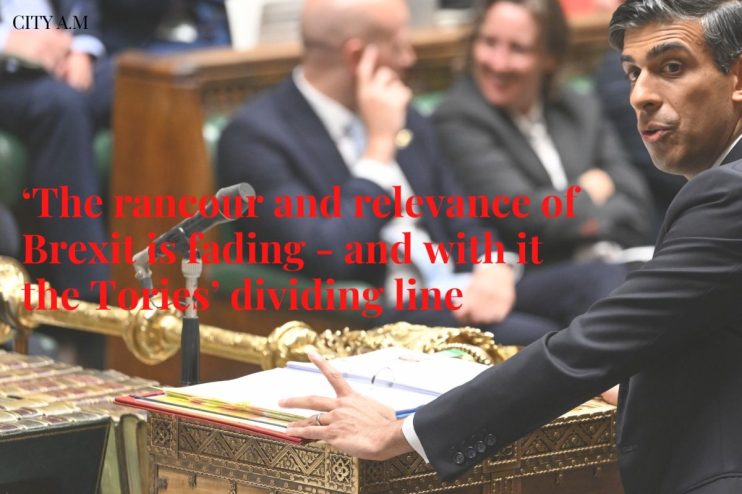Bankers’ bonuses are back and the long 2010s dominated by Brexit are over

There’s a political vibe shift, and the Conservatives are on the losing end of it is Brexit finally takes its final exit, writes John Oxley
Last week the Tories once again flirted with the idea of removing the cap on bankers’ bonuses. It’s a policy that is probably economically sensible but is certainly politically damaging. That the party is looking at it shows they are prepared to take the risk. More than that, it marks the political vibe shift that is going on. The long 2010s are ending.
Political eras are rarely neat, and one moves into another almost imperceptibly. Before you have even realised it, the underlying contours of the debate have moved. The issues and the fights are different. Now this is happening under our feet. As the great winner of the late 90s vibe shift, Tony Blair, put it, a new dawn is breaking, is it not?
The bankers’ bonus cap was symbolic of the financial crisis. It was a totemic, and largely symbolic, way of trying to rein in financiers’ excesses. It rankled with some Tories, especially those close to the City, but was ultimately popular. That the party feels it can finally remove it shows us two things about the shifting political sands.
The first is that we moved on from the aftermath of 2008. The credit crunch has become a historical memory rather than something politically current. It will mean bad PR, but not the same toxicity as it would have in the past. Second, it shows the waning of Tory dominance, their last chance to get some of their least popular changes through because, well, they are getting booted out anyway.
As we move towards the next election this sensation will become more and more apparent. The era of the Tory government will feel more past and less present. Cameroonism already seems that way, with the former PM off in his shed and most of his acolytes and proteges out of parliament. The rancour and relevance of Brexit too is fading, with the Tories struggling to resurrect it as a dividing line. Next year’s first-time voters will have been just fourteen when the referendum happened.
The news around the Covid-19 inquiry this week also feels like a throwback. Johnson and Cummings are no longer the centre of our political fray, but each making their own journey through exile. The failings and the debates around lockdown already seem like they are disappearing from the rear-view mirror. An aftertaste of incompetence remains, but the details and the day-to-day is hazy.
Now the debate is dominated by the cost-of-living crisis, by housing, and by the rising fortunes of the Labour Party. Tory psychodrama and infighting are old hat, and so too are their policies. Now they are largely running down the clock. The current questions are how Labour will engage with business, how Starmer will navigate investing in public services with a constrained ability to raise taxes, and if he can find a foreign policy that placates his party.
The political landscape changes slowly, then all at once. We are reaching one of those inflection points. For anyone who wants to understand or influence the debates, it’s important to recalibrate as the times do. The Tories, in their own small way, are starting to do this as they sneak through a measure which plays well with their supporters but will likely cost them votes elsewhere.
With the impending King’s Speech, we are about to enter the last phase of this government. It will likely be the last year of Conservative power for some time. As their time wanes, so do their options for new policies and legislation, but the mood of the debate will also shift. After thirteen years of Tory rule, it feels almost impossible to remember a time before it. Soon, most of it will be forgotten.
